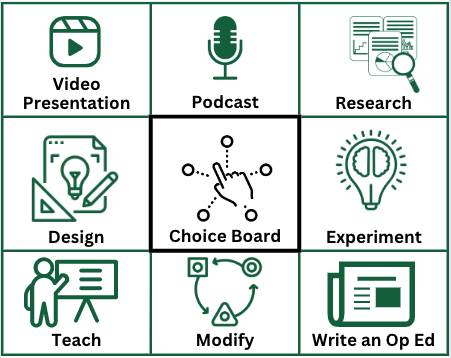Announcing a New OER – Universal Design for Learning (UDL): One Small Step
 We know that learners bring a wide range of knowledge, skills, backgrounds, and experiences into the classroom. As educators, we can expect to find variability in our classroom. The USask Learning Charter lists, as one of the Educator Commitments and Responsibilities, to Strive for Excellence in Teaching. This commitment means that educators work to develop respectful and inclusive learning environments that support student learning. Honouring this commitment requires that educators co-create with students a shared space for learning in which all participants feel respected, valued, and empowered to contribute as they achieve their goals and share the gifts of their identities in relationship with one another. This approach is also part of the work that comes to embody the word manacihtowin (Cree) / manachihitoohk (Michif) (i.e., respect of all individuals). When we don’t respond to the variability in our classrooms, we make our educational experiences exclusive.
We know that learners bring a wide range of knowledge, skills, backgrounds, and experiences into the classroom. As educators, we can expect to find variability in our classroom. The USask Learning Charter lists, as one of the Educator Commitments and Responsibilities, to Strive for Excellence in Teaching. This commitment means that educators work to develop respectful and inclusive learning environments that support student learning. Honouring this commitment requires that educators co-create with students a shared space for learning in which all participants feel respected, valued, and empowered to contribute as they achieve their goals and share the gifts of their identities in relationship with one another. This approach is also part of the work that comes to embody the word manacihtowin (Cree) / manachihitoohk (Michif) (i.e., respect of all individuals). When we don’t respond to the variability in our classrooms, we make our educational experiences exclusive.
Universal Design for Learning (UDL) is a powerful set of approaches that allows you to make sure the greatest range of students can access and engage in learning – not just certain students. A new open educational resource (OER), authored by a collaborative team of TLSE staff members, is available for USask educators to learn more about UDL: Universal Design for Learning: One Small Step.
Sometimes it is hard to know where to start and the amount of information is overwhelming. This short book is designed to provide you with a starting point and encourages you to take one small step (that is, making a single pointed change in your course) to provide an additional method of access, option for assessment, or strategy for engagement for your learners. Visit the book to explore the following:
- Chapter 1: Introduction to Universal Design for Learning – provides the research foundations of UDL, an explanation for each of the three principles of UDL, and some guidelines for approaching course design (or redesign) from a UDL perspective.
- Chapter 2: Assessment and UDL – digs more deeply into using the UDL principles to design assessments that are flexible as well as rigorous.
- Chapter 3: UDL & Best Practices for Technology-Enabled Learning – examines web accessibility as a means of reducing barriers to learning, and will provide additional technical guidance and information specific to the USask technology ecosystem.
Responding to the variability in your classroom is going to make a positive impact on the learning experience and move your course towards greater inclusivity and accessibility. If you have questions about this book, or if you’d like to access more supports for designing/re-designing your course using UDL principles, please email one of the following people:
- For online courses: Julie Maier, Instructional Designer, Distance Education Unit – julie.maier@usask.ca
- For in-person courses: Sara Dzaman, Educational Development Specialist, Gwenna Moss Centre for Teaching and Learning – sara.dzaman@usask.ca


